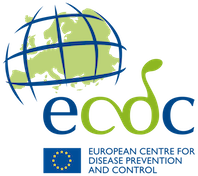Exercise Format
Senior preparedness and response experts participated from:
- EU Member States:
- Bulgaria,
- Croatia,
- Cyprus,
- Greece,
- Hungary,
- Italy,
- Portugal,
- Romania,
- Spain;
- EU enlargement countries:
- Albania,
- Bosnia and Herzegovina,
- Kosovo,
- Montenegro,
- Serbia,
- The former Yugoslav Republic of Macedonia,
- Turkey;
- European Neighbourhood Policy partner countries:
- Algeria,
- Armenia,
- Egypt,
- Georgia,
- Israel,
- Lebanon,
- Moldova,
- Morocco,
- Tunisia,
- Ukraine.
DG SANTE, WHO Euro, WHO EMRO and ECDC also played in the exercise. Three independent expert observers attended the Exercise from ECDC, WHO and the European Commission.
The participants were organised into seven different tables. Each table was formed of up to four countries, at least one from the three different areas (MS, Enlargement and ENP) wherever possible, to enable interactions with other countries in the wider region. The European and international agencies were an intrinsic part of the exercise and had their own table.
Each of the tables had a facilitator.
Participants received paper injects asking
them to consider the issues, risks and challenges raised by the scenario
provided to them. The scenario although fictitious, was as realistic as
possible in order to stimulate discussion and engagement. The scenario was
based on an outbreak of dengue fever initially in neighbouring countries and then within
countries.
During the exercise, participants worked together, by country, responding to the
scenario and associated questions. Each country recorded their decisions and
actions taken on the sheets provided, highlighting gaps or where further
development was required. Each country then discussed their findings with
other countries on their table and identified 3 key points to bring forward to the plenary session. A spokesperson on
each table fed back in plenary at various points during the day.
The facilitator prompted the discussion and made sure timings were kept to.
